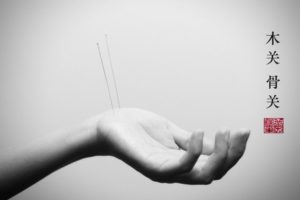December 11, 2017
Can Acupuncture Assist in Management of Anxiety?
Anxiety is a very common condition, in fact, it’s the most common mental health condition in Australia. On average 1 in 4 people will experience anxiety at some stage in their life. That’s a lot of people experiencing anxiety.
It’s important to understand that anxiety is much more than just feeling stressed or worried from time to time, It’s a chronic mental health condition & for many individuals can become a lifelong battle. It is characterised by ‘a persistent feeling of dread, apprehension & impending disaster or tension and uneasiness’ and so much so that it’s significant impairs the individual’s ability to live a normal life. Everyday tasks can become incredibly difficult & even a major trigger in some cases.
Acupuncture is a non-invasive alternative medicine modality which has been successfully used in the treatment of anxiety for many years. So how exactly does it help manage anxiety & how do I know if I’m the right candidate?….
Can Acupuncture help manage Anxiety?
There are many different strategies that can be utilised to aid in the management of anxiety. Acupuncture may be successfully used to alleviate symptoms associated with anxiety & assist the individuals’ recovery. In fact, research is beginning to catch up & prove the capability of acupuncture to reduce chronic symptoms associated with anxiety.
A literature review published in the prestigious British Medical Journal (BMJ) (2007), focusing on the efficacy of using acupuncture to relieve anxiety, compared results from 10 randomised control trials. They concluded that acupuncture was beneficial for the management of both situational & generalised anxiety. In a separate literature review published in CNS Neuroscience & Therapeutics (2011) researchers found that acupuncture was as effective as cognitive behavioural therapy (CBT) in the treatment of anxiety.
Will Acupuncture be right for me?
Due to acupuncture’s non-invasive & gentle nature it really is suitable for anyone. However always consult with your health care professional prior to commencement of any new treatment strategies.

acupuncture anxiety
How does Acupuncture help manage anxiety?
The principle by which acupuncture is able to assist individuals manage their anxiety is based upon the Traditional Chinese Medicine (TCM) philosophy that health is dependent of the fluent & balanced movement of energy throughout the main channels of the body. Intense stress & emotion, as experienced during anxiety, begins to disrupt & block this flow of energy resulting in a number of the chronic physical & psychological symptoms suffers may experience including panic, sweating, headaches, muscle tension & even insomnia.
Acupuncture seeks to address imbalances between body, mind, emotions & spirit. It achieves this by improving circulation & oxygenation of the entire body, particularly the brain. Acupuncture may also stimulate the nervous system & facilitate natural production of endorphins & enkephalins, the body’s natural feel good hormones. This essentially means that acupuncture aims to alleviate stress & reduce the impact it has on physical & emotional health by essentially “resetting the nervous system”.
If you or a loved one are experiencing anxiety and would like to inquire about treatment options please email info@artofacupuncture.com.au or click here to book a consultation.
*Results may vary from person to person. The owner of this website does not claim to cure, or prevent any disease or illness. For more information on how acupuncture works, contact info@artofacupuncture.com.au
Reference
- Beyond Blue (Anxiety) https://www.beyondblue.org.au/the-facts/anxiety
- Pilkington K, Kirkwood G, Rampes H, et al’ Acupuncture for anxiety and anxiety disorders – a systematic literature review’, Acupuncture in Medicine 2007;25:1-10.
- Errington-Evans, N, ‘Acupuncture for Anxiety’, CNS Neuroscience & Therapeutics2011,

